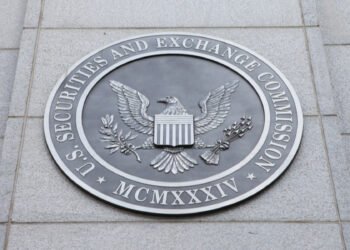The goal is to make way for innovation, says SEC Chair
The United States Securities and Exchange Commission (SEC) has announced the formation of a new group with expanded scope targeting cyber fraud and misconduct involving blockchain the cryptocurrency.
The move is being widely applauded as another push by the US to embrace digital assets.
What We Know:
The new “Cyber and Emerging Technologies Unit” will focus on protecting retail investors who are increasingly joining the emerging tech space.
CETU will consist of 30 fraud specialists and attorneys across multiple SEC offices and target fraudulent securities transactions, scams committed with social media, false websites and using blockchain-based technologies.
It will replace the SEC’s Crypto Assets and Cyber Unit, which was engaged in taking action against fraudulent and unregistered crypto offerings.
The SEC’s New Constructive Role in Crypto:
Acting SEC Chair Mark Uyeda said that the goal of the unit is not only protect investors but also to facilitate capital formation and market efficiency by clearing the way for innovation to grow.
“It will root out those seeking to misuse innovation to harm investors and diminish confidence in new technologies,” he added.
This shift from the SEC’s regulation-by-enforcement approach that hindered the growth of the industry is credited to “crypto president” Trump’s arrival.
Recent actions, such as court filings in enforcement cases against Binance, Coinbase, and Lejilex and efforts to develop a crypto regulatory framework, along with the current introduction of the CETU mark the beginning of a new constructive role for SEC in crypto.
Crypto Scams on a Rise:
The move by the SEC is timely considering the recent rise in crypto scams, especially those targeting retail investors.
Most recently, the fallout from Argentine President Javier Milei-backed memecoin $LIBRA, and its pump and dump scam shook the market.
Fraud has been a more systematic issue with the FBI reporting Americans losing over $5B due to crypto scams in 2023. This is only expected to get worse with artificial intelligence and professional scamming support services as the fraud industry gets more sophisticated.





















